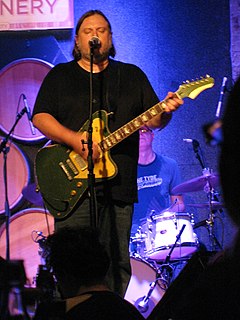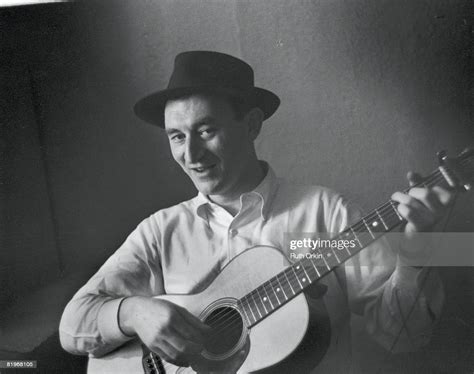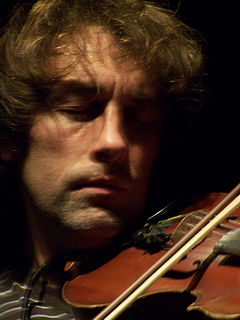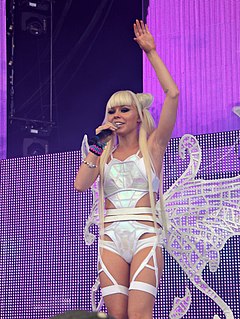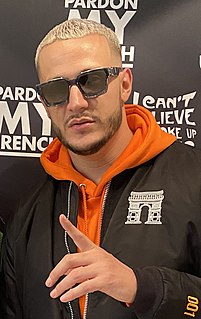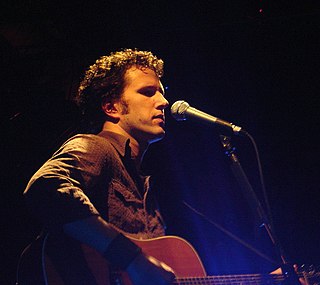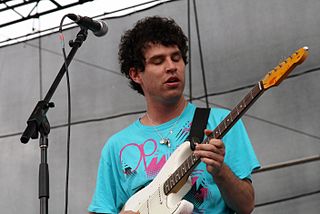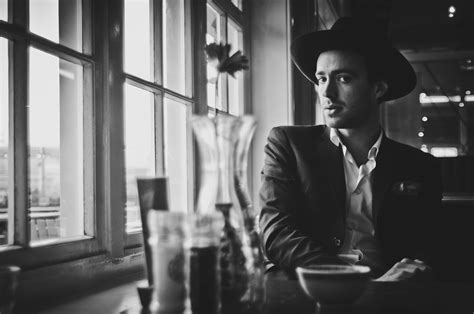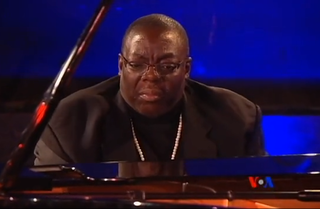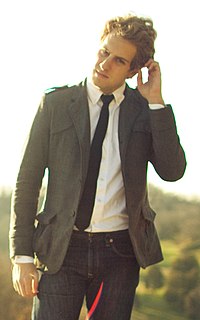A Quote by Matthew Sweet
He helped make Living Things even more crazy than I wanted it to be. He added old-fashioned piano and classical folk music - that weird otherworldly vibe - all these elements got onto the record.
Related Quotes
That happens a lot when people become parents, too. There's just so much at stake suddenly, and you're also witness to the total miracle of birth, and stuff like that. So I started reading tons of religious texts and checking everything out. One of the things I wanted to make sure of on the record is that it still has a "searching" vibe rather than an authoritative vibe.
It's weird, in New York, it's like the big theme of everything is folk music and interacting with people. Maryland is where the landscape of our music comes from, it was more like, let's walk around. People are saying that we are part of some sort of folk scene. We don't feel connected with it. We do live in the city, and communicate with people. It's all folk music.
I think what makes the Byrds stand up all these years is the basis in folk music. Folk music, being a timeless art form, is the foundation of the Byrds. We were all from a folk background. We considered ourselves folk singers even when we strapped on electric instruments and dabbled in different things.
For me, let's keep jazz as folk music. Let's not make jazz classical music. Let's keep it as street music, as people's everyday-life music. Let's see jazz musicians continue to use the materials, the tools, the spirit of the actual time that they're living in, as what they build their lives as musicians around.
When I was young I wanted to make films and then I got into folk music when I was about 12, and started going to this folk club in Auckland. My dad [Barry Andrews] was in punk and post-punk bands, so I guess it was a side of music I hadn't really listened to before - the really narrative form of songwriting.
My mom tells this story that even when I was in the womb, my father played the piano and she sang. So, before I officially got here, I was already surrounded by music. I also like the way my father explains it. When I was about 3-years old, in order to keep me quiet, my father would put me in the bassinet and either put on some music or play the piano. When he started playing, I got quiet and eventually went to sleep. He said by the time I turned 3, I just climbed up on the piano and started playing it with the attitude of I'm gonna play dis here piano.
